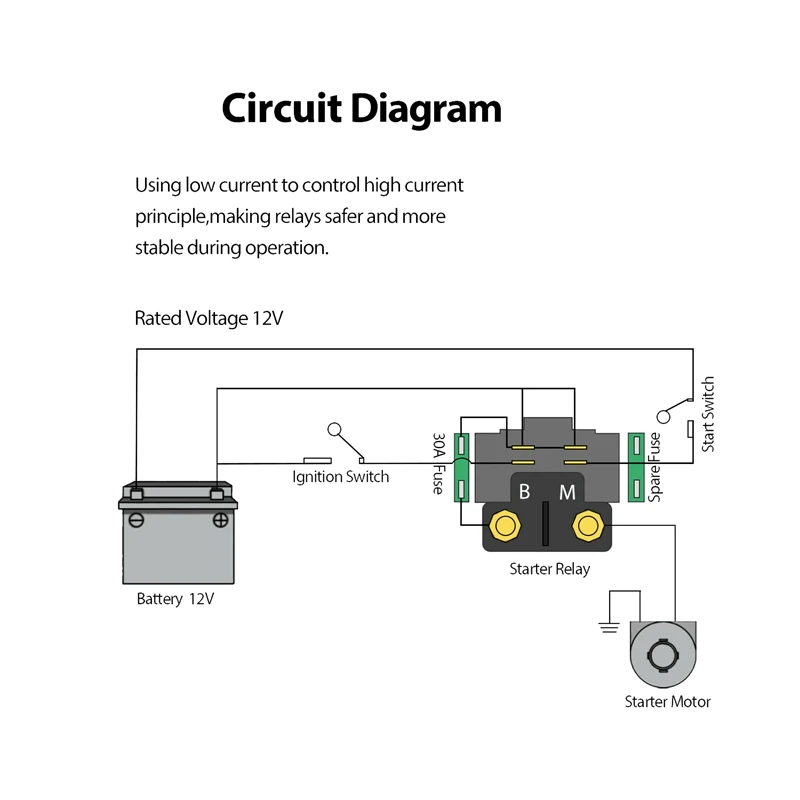The starter solenoid turns an electric signal from the ignition key into a high voltage signal that activates the starter motor. If there is a problem with your starter solenoid, your ATV won’t start. While you can’t rule out replacing the starter solenoid, sometimes it’s not necessary and all it may need is a bit of troubleshooting.
Before you make any conclusions, it is important you rule out other problems such as battery issues. Fortunately, there are several tell-signs that something is wrong with the starter solenoid. These include:
This is the most common sign pointing to issues with the starter solenoid. If you engage the ignition process and your vehicle doesn’t turn on, it may be because of a faulty starter solenoid.
When you start the engine and stop pressing the starter button on modern vehicles, the circuit is supposed to close, discontinuing power to the starter motor. If your starter stays on after the engine has ignited, most likely the main contacts in the starter solenoid have welded together in the closed position.
Check this too: Best Dust Mask for ATV Riding
This is a common symptom when the battery is low on amps, but it could also be the starter solenoid isn’t sending a full signal.
A starter relay sends power to the starter each time it is engaged. If it is not working properly, maybe due to damage arising from dirt, excessive heat, debris or other issues, the starter might operate sporadically. If the starter doesn’t activate instantly when you try to start your ATV but then works when you turn the key switch once again, this is most likely a problem with the solenoid.
There are two basic tests you can do to evaluate the condition of your solenoid. You will need the following tools:
This test is designed to establish if the contactor is pushing up and completing the solenoid connection.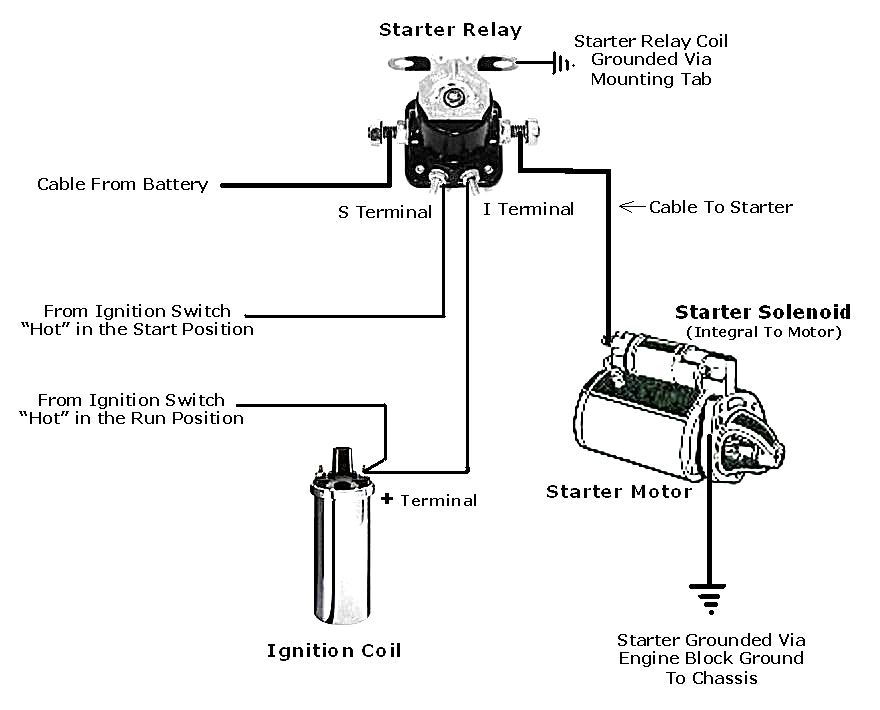 To do that:
To do that:

The tests involve first checking to make sure the connector is engaging and completing the starter circuit and then making sure the starter circuit is connected when the connector is engaged.
If you have a bad solenoid, you can start your quad by jumping the starter solenoid wires with a wrench. First, you will need to find the starter solenoid, usually located on the outside of the plastic next to or under the battery and close to the wiring harness. You should see two big main wires once you’ve located the starter solenoid. If it is set up, you can then jump the wires and be able to start the quad.
A starter relay consists of a coil wire wound around a ferrous core and an armature on one of the coil. A starter solenoid, on the other hand, is a coil enclosing a movable plunger. Unlike in the starter relay where the coil core is immovable, a starter solenoid core is an iron or steel plunger free to move in and out of the coil. However, the terms solenoid and relay can often be used interchangeably.
However, the terms solenoid and relay can often be used interchangeably.
Check this too: Best ATV Goggles For The Money
You can jump a starter solenoid if you have a good and strong battery to start the engine. You should only proceed if your battery has enough current to turn the motor, otherwise, you won’t be able to start the vehicle by jumping the starter solenoid.
I think it’s safe to say that at one point or another, we’ve all had problems with an ATV starter. If you haven’t yet, you will. I have had starter issues with just about everything I have owned. You go to start your ATV and all you hear is, "CLICK". No engine crank.So you try it again and "CLICK". Nothing. You know the battery is good, you have the clutch pulled (if it has one), the ATV is in neutral, and the light is on but still… nothing.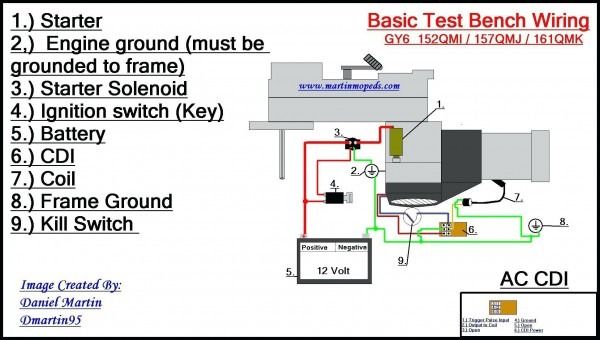 The first thing you should do in this situation is to check the battery and connections.
The first thing you should do in this situation is to check the battery and connections.
If you haven't read our post on multimeters yet, now's a good time to check it out.
More than likely, you already know that the battery is good, but we’ve all been in a hurry. I've mentioned before that it seems like it can be easy to overlook something small because we’re so used to taking care of it.
Kind of like when you call tech support for a computer issue and the first thing they ask is, “Is it plugged in?” I know I am guilty of doing a quick run through and noticing later on that the battery terminals were loose or that the battery was low. Once you have verified that the battery is NOT your problem, the next thing you should look at is the starter solenoid.
An ATV starter solenoid can normally be found on the frame. It is usually located on the outside of the plastic right next to or under the battery and near the wiring harness.
A starter solenoid is a switch that controls a high amp load with a low amp. Starter solenoids come in all different shapes and sizes, but normally they have a round or square body with two larger and two smaller wires. The larger wires are for the high amp load and the smaller wires are for the low amp switch. If yours only has one smaller wire, the ground is coming from the frame where it is mounted. It may be sitting in a plastic or rubber cover, but it's not uncommon for it to be on the outside.
Of the two larger wires, one of them will be coming from the battery (red) and the other will go to the starter (black). You should be able to get a voltage reading from the red wire coming from the battery. Do this by using the voltage setting on your multimeter, with the red lead on the post and the black lead on a frame ground or negative battery terminal.
If you do not have voltage at the post on the solenoid that connects to the battery, check your connection at the battery and then trace the cable from the battery to the solenoid checking for any breaks or a loose connection.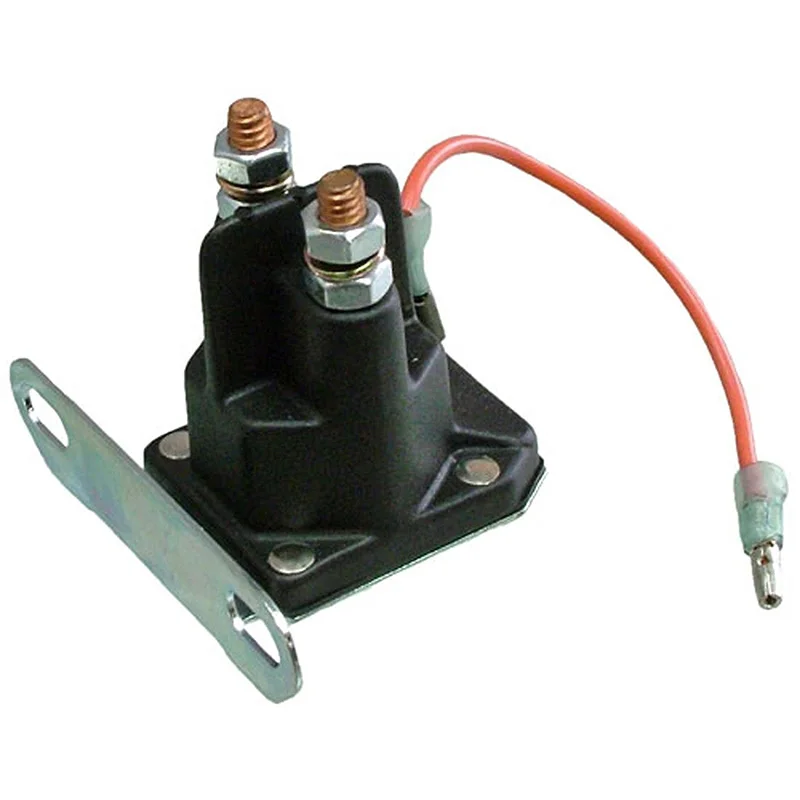
The other wire should not have a voltage reading.
Of the two smaller wires, one is a negative, or a ground, and the other is positive. I have found that the easiest way for me to test these is to unplug the connector and put both test leads into the ATV wiring harness side connector; the reading here should also be zero.
Now turn the key and get the bike ready to start (do not actually start the bike, just take the usual steps you would before starting; i.e., turn the key, make sure the bike is in neutral, etc.) This step can get kind of tricky if you've only got one set of hands. I definitely recommend using test leads with alligator clips on the ends. You can pick up the clips for around 50 cents a piece and make your own or buy a pre-made set for a couple of bucks.
When you push the start button, you should get a reading of 12V.
This battery in this photo is our test battery, so we expect the voltage to be a little low. We use this guy whenever we've bought a used ATV without a battery or for demonstration purposes. Along with our multimeter, he's made appearances here, here, and here. As long as you have a reading that is close to 12V, we'll move on.
We use this guy whenever we've bought a used ATV without a battery or for demonstration purposes. Along with our multimeter, he's made appearances here, here, and here. As long as you have a reading that is close to 12V, we'll move on.
If not, you may want to run this test a few more times to make sure you have done all of the normal stuff you would do when you start your ATV (like making sure it is in neutral, all of your wires are connected, etc). I know it is redundant but you would not believe the amount of times I have been called out to a HMMWV (that would be a Hummer in civilian speak) that would not start, only to find it was left in gear.
If you still are unable to get a voltage reading, more than likely there is an issue with a safety switch or a kill switch. Due to the vast differences between ATV models, you will want to refer to the service manual for your specific model of ATV. If you are stuck on this step, feel free to contact us and I will see what I can dig up for you. If you've gotten a voltage reading close to 12V, you can confirm that thepush button is working and giving the solenoid the signal to close.
If you've gotten a voltage reading close to 12V, you can confirm that thepush button is working and giving the solenoid the signal to close.
The last thing to check now is the starter. To test the connection between the solenoid and the starter, plug the connector back into the wiring harness and test for voltage on the starter side (big terminal) while pushing the start button.
If you've gotten a voltage reading close to 12V, you can confirm that the push button is working and giving the solenoid the signal to close. The last thing to check now is the starter. To test the connection between the solenoid and the starter, plug the connector back into the wiring harness and test for voltage on the starter side (big terminal) while pushing the start button.
If you do not have voltage reading, then your solenoid is bad and will need to be replaced. If you do get a voltage reading, trace the large wire from the solenoid to the starter and make sure it has no cuts or breaks and that it is tightly connected to the starter.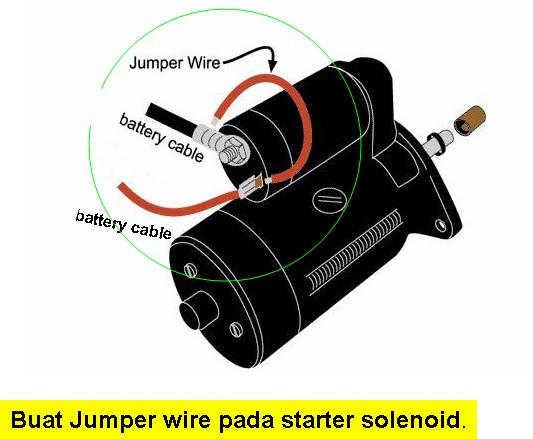 If there are no issues with the wire or connection, then your issue is with the starter and it will more than likely need to be replaced.
If there are no issues with the wire or connection, then your issue is with the starter and it will more than likely need to be replaced.
It seems like a lot of steps to get to this point, but if you don’t conduct all of the above tests in the correct order, you could be misdiagnosing the problem. What may appear to be a bad solenoid, may really be something as simple as the kill switch being turned off or the bike being in gear (Don’t ask me how I know. Ok, ask). We'll be back in the next few weeks with some more troubleshooting posts, but in the meantime, let us know what you think.
Have you ever spent a couple of hours troubleshooting your starter only to find that your bike was in gear or the kill switch was off? Tell us about it. We want to hear everything. Good experiences, bad experiences, requests, whatever you've got. Let us know in the comments below or give us a shout on Facebook.
11/22/2017 #Relay retractor # Starter
Retractor relay: starter control Electric car starter is controlled by a special device located on its body - a retractor (or traction) relay.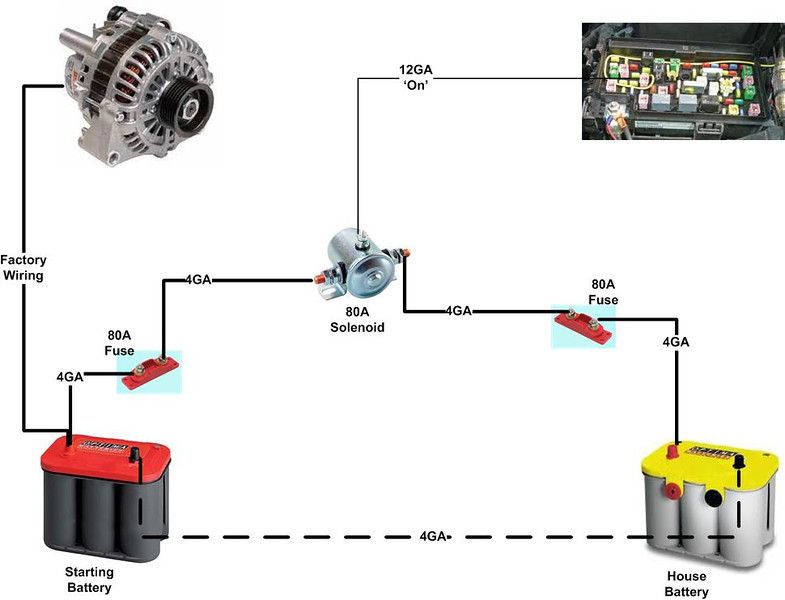 All about solenoid relays, their design, types and principle of operation, as well as the correct selection and replacement of the relay in the event of a breakdown - read in this article. nine0003
All about solenoid relays, their design, types and principle of operation, as well as the correct selection and replacement of the relay in the event of a breakdown - read in this article. nine0003
Starter solenoid relay (traction relay) - automotive electric starter assembly; a solenoid combined with a contact group that connects the starter motor to the battery and mechanically connects the starter to the flywheel crown when starting the engine.
The solenoid relay is included in the mechanical and electrical parts of the starter, controlling their joint work. This node has several functions:
The traction relay, although it works as part of the starter, is a separate unit that plays an important role in the operation of the engine starting system.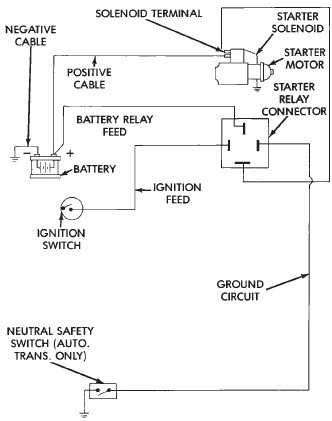 Any malfunction of this unit will make starting the engine much more difficult or impossible, so repair or replacement must be carried out as soon as possible. But before buying a new relay, you should understand its types, features and principle of operation. nine0003
Any malfunction of this unit will make starting the engine much more difficult or impossible, so repair or replacement must be carried out as soon as possible. But before buying a new relay, you should understand its types, features and principle of operation. nine0003
Starter solenoid assembly
Electric starters currently use identical solenoid relays in design and operation. This assembly contains two interconnected devices - a power relay and a solenoid with a movable armature that turns it on (and at the same time brings the bendix to the flywheel).
The design is based on a cylindrical solenoid with two windings - a large retractor and a retainer wound on top of it. On the back of the solenoid is a relay housing made of a durable dielectric material. On the end wall of the relay there are contact bolts - these are high-section terminals through which the starter is connected to the battery. The bolts can be steel, copper or brass, the use of such contacts is due to high currents in the starter circuit when starting the engine - they reach 400-800 A or more, and simple terminals would simply melt at such a current. nine0003
The bolts can be steel, copper or brass, the use of such contacts is due to high currents in the starter circuit when starting the engine - they reach 400-800 A or more, and simple terminals would simply melt at such a current. nine0003
Inside the solenoid is a movable rod, which on the relay side carries a contact disk - a circle of brass or other alloy. The rod is withdrawn from the contact bolts by a spring, therefore, in the non-working position, the circuit is open. Also, a massive anchor is located inside the solenoid, however, this part does not have a rigid fixation and, if necessary, can be easily removed. The armature is a metal (steel) rod of circular cross section, it is spring-loaded and protrudes from the solenoid in the non-working position. At the rear end of the armature there is a recess for resting against the relay rod. On the outer part of the anchor, a groove, hole, brackets or other devices are made for connection with the starter drive plug. nine0003
This whole structure is placed in a metal case (separable or non-separable), on the dielectric case of the relay there are terminals for connecting the assembly to the appropriate electrical circuits - the power circuit, the ignition switch circuit and, if provided, to the ignition coil circuit. The relay is rigidly mounted on the starter housing.
The relay is rigidly mounted on the starter housing.
Traction relays, having a fundamentally identical design, are divided into two types according to their functionality (and the number of contacts on the relay side):
The first type of relay has the construction described above, while the second type relay has an additional terminal with a spring contact, which is closed by a contact disk. In the relay of the first type there are only four terminals - two power and two low-current (for connecting the retracting and holding windings), and in the relay of the second type there are already five terminals - two power, two low-current and one additional. nine0003
Connection diagram for solenoid relay with auxiliary contact and auxiliary starter relay
Solenoid relays of all types have the same principle of operation.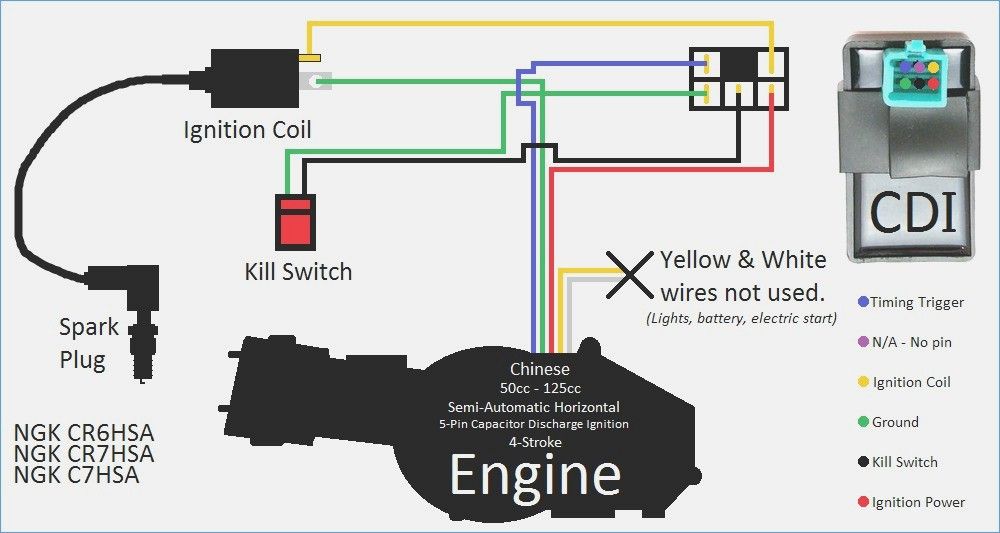 There are three processes running in parallel at this node.
There are three processes running in parallel at this node.
When the ignition key is turned to the starter position, current from the battery is supplied to both coils of the solenoid - retracting and holding. A magnetic field arises in the solenoid, which draws in the armature - it overcomes the resistance of the spring and enters the inside of the solenoid until it stops. Moving, the armature pulls the fork, which, acting as a lever, brings the starter drive with the drive gear fixed to it to the flywheel ring gear - the starter is mechanically connected to the engine. nine0003
Also during movement, the anchor pushes the rod with its back side. The contact disk fixed on the rod rests against the contact bolts and closes the starter power supply circuit - the starter armature starts to rotate, the torque from it through the bendix goes to the flywheel and crankshaft, the engine starts. If the relay has an auxiliary contact, then when it is closed, current is supplied to the ignition coil or any auxiliary equipment necessary to start the engine.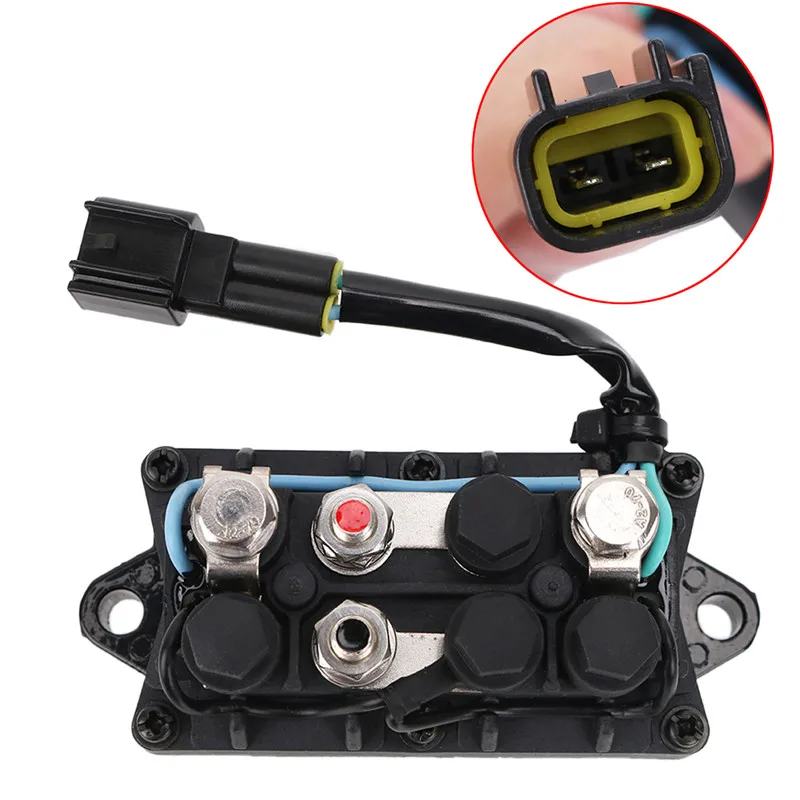 nine0003
nine0003
When the contact bolts are closed, the retracting winding is short-circuited (its terminals are closed to each other), so it stops working. However, the holding winding is still connected to the battery, and the magnetic field it creates is sufficient to hold the armature securely inside the solenoid.
After a successful start of the engine, the ignition key returns to its original position, as a result of which the holding winding circuit breaks - in this magnetic field around the solenoid disappears and the armature is pushed out of the solenoid by the action of the spring, and the rod is retracted from the contact bolts. The starter drive is retracted from the flywheel crown, and the starter is disengaged. The traction relay and the entire starter are transferred to the position of readiness for a new engine start. nine0003
The general arrangement of the electric starter and the location of the solenoid relay in it
The traction relay is subjected to significant electrical and mechanical stress, so there is a high probability of its failure even with careful operation.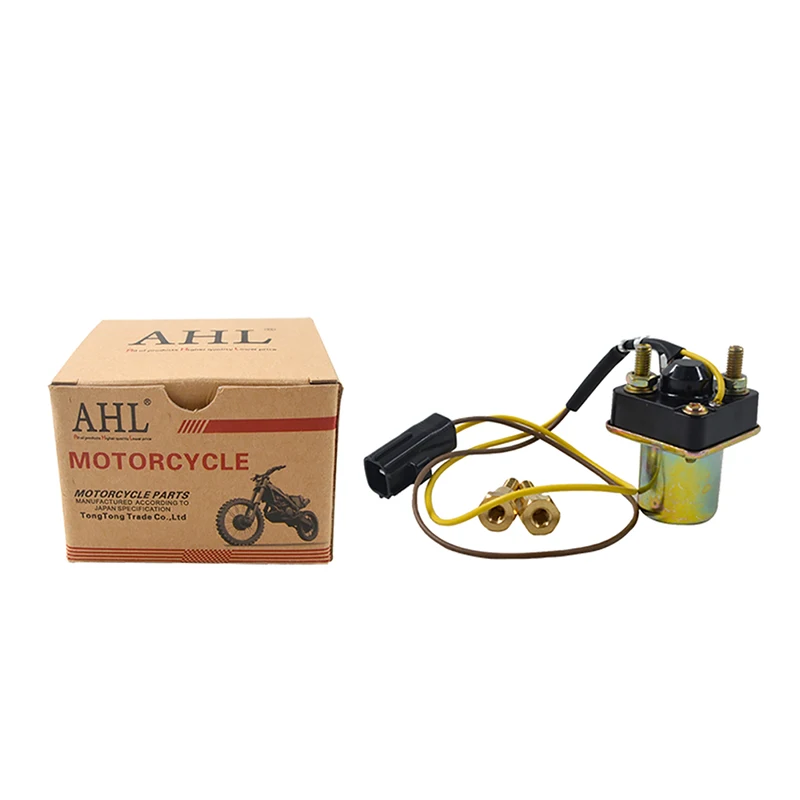 Various signs indicate a malfunction of this unit - the absence of a characteristic knock of the starter drive supply when the ignition is turned on, weak rotation of the starter with a charged battery, starter "silence" when the drive supply is running, and others. Also, malfunctions are detected when the relay rings - usually there are breaks in the windings, an increase in resistance in the power circuit due to burning and contamination of the contacts, etc. Diagnostic algorithms, usually given in the vehicle manual, help determine the malfunction. Often, it is difficult or impossible to eliminate the identified problems (for example, a break in the retracting or holding windings, breakage of the contact bolt, and some others), so the relay is easier and cheaper to completely replace. nine0003
Various signs indicate a malfunction of this unit - the absence of a characteristic knock of the starter drive supply when the ignition is turned on, weak rotation of the starter with a charged battery, starter "silence" when the drive supply is running, and others. Also, malfunctions are detected when the relay rings - usually there are breaks in the windings, an increase in resistance in the power circuit due to burning and contamination of the contacts, etc. Diagnostic algorithms, usually given in the vehicle manual, help determine the malfunction. Often, it is difficult or impossible to eliminate the identified problems (for example, a break in the retracting or holding windings, breakage of the contact bolt, and some others), so the relay is easier and cheaper to completely replace. nine0003
Only those types and models of solenoid relays specified by the vehicle manufacturer should be selected for replacement. The purchase must be made by catalog numbers - this is the only way you can confidently change the unit and make the starter work in normal mode. It is difficult or impossible in principle to install a relay of another type (due to unequal dimensions), and if this can be done, then the starter may not work correctly or not perform its main function at all.
It is difficult or impossible in principle to install a relay of another type (due to unequal dimensions), and if this can be done, then the starter may not work correctly or not perform its main function at all.
To replace the relay, the electric starter must be removed from the engine and disassembled, often with a special tool. When installing a new relay, it is necessary to carefully make electrical connections - the wires are pre-stripped and twisted, when fixing them on the terminals, it is necessary to ensure reliability by preventing sparking and heating. All operations are best performed in accordance with the recommendations prescribed by the automaker in the instructions for the repair and maintenance of the vehicle. nine0003
In the future, the traction relay, like the starter itself, requires only periodic inspection and testing in accordance with the maintenance regulations. When properly selected and replaced, this assembly will operate reliably and efficiently, providing reliable engine starting.
#Generator bar
Generator bar: fixing and adjusting the car's generator
14.09.2022 | Articles about spare parts
In automobiles, tractors, buses and other equipment, electric generators are mounted to the engine by means of a bracket and a tensioner that provides belt tension adjustment. About the generator strips, their existing types and designs, as well as the selection and replacement of these parts - read the article. nine0003
#Compressor adapter
Compressor adapter: reliable pneumatic connections
08/31/2022 | Articles on spare parts
Even a simple pneumatic system contains several connecting parts - fittings, or adapters for the compressor. About what an adapter for a compressor is, what types it is, why it is necessary and how it works, as well as the correct selection of fittings for a particular system - read the article.
#Nissan stabilizer link
Stabilizer bar Nissan: the basis of the lateral stability of the "Japanese"
06/22/2022 | Spare Parts Articles
The chassis of many Japanese Nissan vehicles is equipped with a split type anti-roll bar connected to the suspension parts by two separate struts (rods). All about Nissan stabilizer struts, their types and design, as well as selection and repair - read in this article.
#Drive V-belt
Drive V-belt: reliable drive of aggregates and equipment
06/15/2022 | Articles about spare parts
Gears based on rubber V-belts are widely used to drive engine units and in transmissions of various equipment. All about drive V-belts, their existing types, design features and characteristics, as well as the correct choice and replacement of belts - read the article.
Back to the list of articles
Due to the instability of the exchange rate, our suppliers, and therefore we, are forced to constantly revise the prices for the products presented. Sometimes our managers do not have time to update and set the current price for a particular product in a timely manner (prices due to fluctuations in the exchange rate of the ruble against the dollar and the euro can change not only every day, but also several times during the day). As a result, the sale price may differ from what is currently posted on the site!
Sometimes our managers do not have time to update and set the current price for a particular product in a timely manner (prices due to fluctuations in the exchange rate of the ruble against the dollar and the euro can change not only every day, but also several times during the day). As a result, the sale price may differ from what is currently posted on the site!
Home / Manufacturers / Arrowhead
Default
Alphabet
Priced
Popularity
In Stock Only
Item Code: 0156589
Starter for Arctic Cat ATV SMU0299
Art. No.
SMU0299
Alternative Art. 3545-024
Manufacturer
Arrowhead
Country of origin
Taiwan
Product code: 0891160
ATV regulator relay BRP Yamaha Polaris Honda Arctic Cat AT-01227 4012941 710001103
Article
4012941; 710001103
Alternative part numbers
ASD6009; APO6016; 249412; 1D7-81960-01-00; 710000908; 710000870; 1D7-81960-01-00; 31600-HP0-A01; 0824-072
Manufacturer
Arrowhead
Country of origin
Taiwan
Product code: 1000845
Jet ski starter BRP 278001937 / Ph200-SD05-R
Art. No.
No.
278001937; Ph200-SD05-R
Alternative part numbers
278000987; 26-1122; SMU0023; 248001; 278000956; SMU9101
Manufacturer
Arrowhead
Country of origin
Taiwan
Product code: 0151960
ATV Starter Repair Kit SMU9125
Art. No.
SMU9125
Alternative Art. No.
SMU0271; 4010417; 4013268; 31206-MR6-008; 4013268; 3AJ-81801-00-00
Manufacturer
Arrowhead
Country of origin
Taiwan
Product code: 0466365
Starter relay for ATV Polaris 4012001
Art.
4012001
Alternative Art. SMU6097; 249441
Manufacturer
Arrowhead
Country of origin
Taiwan
Product code: 0513181
Starter for ATV Polaris 4013245 SMU0518
Art. No.
4013245; SMU0518
Alternative part numbers
4013059
Manufacturer
Arrowhead
Country of origin
Taiwan
Product code: 0156564
Starter for ATV ARCTIC CAT SMU0297
Article
SMU0297
Alternative articles
3545-016
Manufacturer
Arroud
Country
Taivan0003
Product code: 0156817
Starter Repair Kit BRP SND9137
Art.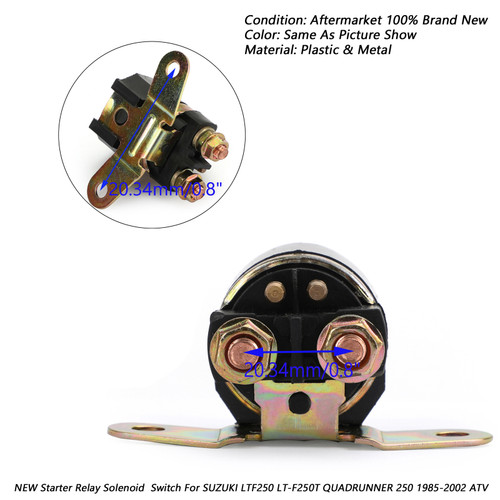 No.
No.
SND9137
Alternative Art. No.
SND0513; 420684560; 420684562; 420684566; SM-01305; 249548
Manufacturer
Arrowhead
Country of origin
Taiwan
Product code: 0151953
Snowmobile starter kit SAB9102
Art. No.
SAB9102
0003
SAB0105; 4170006; 2410748; SAB0165; SAB0150; SAB0165; 0745-395; 0745-382; 0745-351; 0745-331; SAB0150; 0745-030; 0745-018; 0745-052; 0745-030; 0745-257; 0745-357
Manufacturer
Arrowhead
Country of origin
Taiwan
Product code: 0513453
Starter for ATV Yamaha SMU0503
Item
SMU0503
Alternative items
1S3-81890-00-00
0003
Arrowhead
Country of origin
Taiwan
Product code: 0154666
ARCTIC Cat and0454
Suniter
Article
and0454
Alternative articles
3006-261
Manufacturer
Arroud
Production Country
Thai
Code: 0147904
Electric starter for snowmobile Arctic Cat SAB0150
Article
SAB0150
Alternative part numbers
0745-030; 0745-018; 0745-052; 0745-257; 0745-357
Manufacturer
Arrowhead
Country of origin
Taiwan
Product code: 0513324
ATV Starter Repair Kit Polaris SMU9114
Art.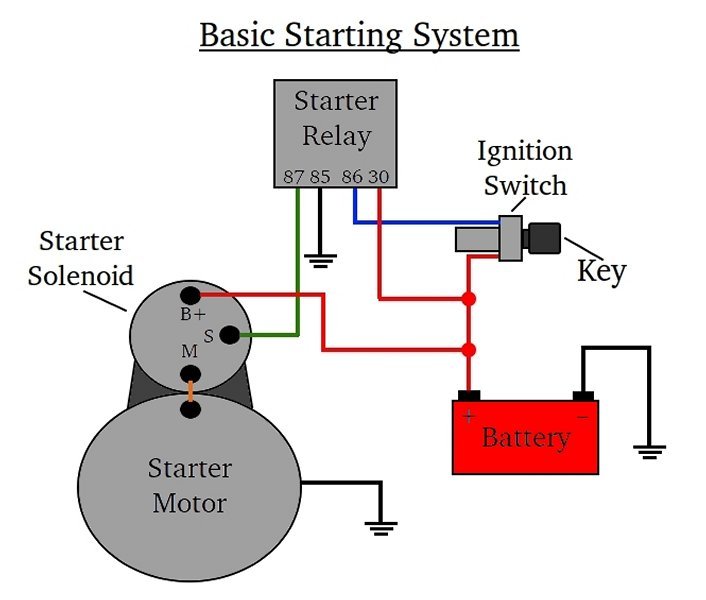 No.
No.
SMU9114
Alternative Art. 30
; SMU0061Manufacturer
Arrowhead
Country of origin
Taiwan
Product code: 0156698
Starter for Arctic Cat ATV SMU0433
Art. No.
SMU0433
Alternative Art. 0825-013; 0825-011
Manufacturer
Arrowhead
Country of origin
Taiwan
Product code: 1000858
Yamaha jet ski starter 6M6-81800-10-00 / Ph200-YA01-R
Article
6M6-81800-10-00; Ph200-YA01-R
Alternative part numbers
SMU0026; 26-1123; 248002
Manufacturer
Arrowhead
Country of origin
Taiwan
Product code: 0002666
Snowmobile regulator relay BRP 515175491 01-154-17
Art. No.
01-154-17; 515175491
Alternative part numbers
12-30700; ASD6006; 515173200; 515175216; KX0115417; 2112-0360; 280549
Manufacturer
Arrowhead
Country of origin
Taiwan
Product code: 0002656
Snowmobile starter BRP 515176103 515176585 SM-01329 SND0608
Article
SM-01329; SND0608; 515176103; 515176585
Alternative part numbers
12-3026; SM-01310; SND5071
Manufacturer
Arrowhead
Country of origin
Taiwan
Product code: 0513398
Starter for Yamaha ATV SMU0263
Art.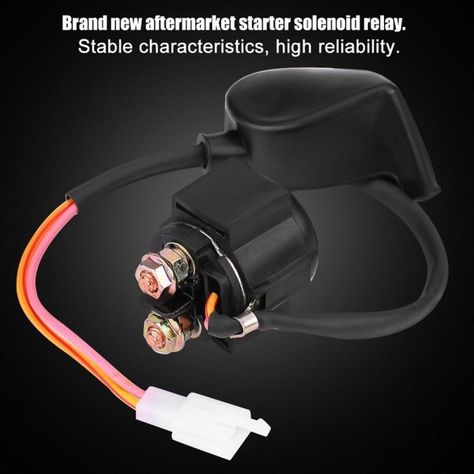 No.
No.
SMU0263
Alternative Art. No.
5KM-81890-00-00; 4WV-81890-00-00; SMU9152; 2MB-h2890-00-00
Manufacturer
Arrowhead
Country of origin
Taiwan
Product code: 0156763
Starter for ATV BRP SMU0287
Art. No.
SMU0287
Alternative Art. No.
420684280; 420684282; 420684283
Manufacturer
Arrowhead
Country of origin
Taiwan
Product code: 0002646
Electric starter for snowmobile BRP (SND0513)
Art. No.
SND0513
Alternative Art. 420684562; 420684566; 420684568; SM-01305
Manufacturer
Arrowhead
Product code: 0156957
Starter for ATV CFMOTO SCH0079
Article
SCH0079
Alternative Article
0800-091000
Manufacturer
Arrowhead
Country of origin
Taiwan
Product code: 0156841
Starter for ATV CFMOTO SCH0015
Article
SCH0015
Alternative articles
0180-091100-0010
Manufacturer
Arrrowhead
Taivan Code 0156783
ATV starter BRP 420684560 420684562 420684566 SND0513
Art. No.
No.
SND0513; 420684560; 420684562; Product code: 0002131
Relay ATV regulator BRP ASD6012 710001191
Article
ASD6012 710001191
Manufacturer
Arrowhead
Production
Taiwan
9000 9000Yamaha Jet Ski Starter 6D3-81800-00-00
Art. SMU0408; 248135; 26-1139; SMU9125
Manufacturer
Arrowhead
Country of origin
Taiwan
Product code: 0156716
Starter for Arctic Cat ATV SMU0397
Article
SMU0397
Alternative Article
3545-020
Manufacturer
Arrowhead
Country of origin
Taiwan
Product code: 0147834
Electric starter for Arctic Cat snowmobile SAB0151
Part number
SAB0151
Alternative part numbers
0645-183; 0745-129; 0645-101; 0745-143; 0745-126; 0645-578; 0745-344; 0745-356
Manufacturer
Arrowhead
Country of origin
Taiwan
Product code: 0156724
Starter for Arctic Cat ATV SMU0509
Art. No.
No.
SMU0509
Alternative Art. 0825-025
Manufacturer
Arrowhead
Country of origin
Taiwan
Product code: 0154433
Regulator relay BRP Yamaha Polaris Honda Arctic Cat AT-01227 4012941 710001103
Article
AT-01227; 710001103
Alternative part numbers
ASD6009; AHA6058; 1D7-81960-01-00; 31600-HP0-A01; 1D7-81960-00-00; 0824-072; 515177325; 278002021; 710000908; 710000870; 8JP-h2960-00-00; APO6016
Manufacturer
Arrowhead
Country of origin
Taiwan
Product code: 0156899
Starter for ATV CFMOTO SCH0080
Article
SCH0080
Alternative articles
0600-091100
Arrowhead0003
Country of origin
Taiwan
Product code: 0002664
Snowmobile regulator relay BRP 515175939 ASD6011
Article
ASD6011; 515175939
Alternative part numbers
515175656; 515176189; 195300; 62-01006; SM-01140
Manufacturer
Arrowhead
Country of origin
Taiwan
Product code: 0151789
Electric starter for snowmobile Polaris SHI0200
Article
SHI0200
Alternative articles
3083189
Manufacturer
Arrowhead
Country of origin
Taiwan Code:
Taiwan 0151850
Electric starter for Polaris snowmobile SAB0166
Art.